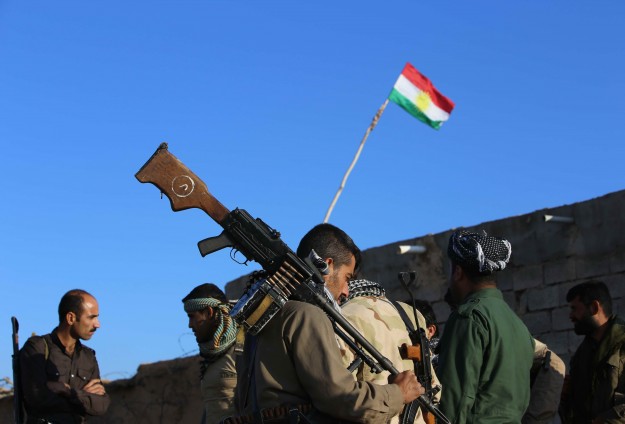Iraqi Kurdish forces blocked displaced Arabs from returning to their homes in disputed territories that Kurdish regional authorities and Iraq’s central government stake claim.
 Iraqi Kurdish forces blocked displaced Arabs from returning to their homes in disputed territories that Kurdish regional authorities and Iraq’s central government stake claim, a human rights watchdog said Thursday.
Iraqi Kurdish forces blocked displaced Arabs from returning to their homes in disputed territories that Kurdish regional authorities and Iraq’s central government stake claim, a human rights watchdog said Thursday.
Human Rights Watch said Kurdish forces confined thousands of Arabs for months in parts of northern Iraq that they have captured since last August from militants of the so-called 'Islamic State of Iraq and the Levant' (ISIL) takfiri group.
HRW said Kurds freely returned to the recovered areas in Ninewa and Erbil provinces, while displaced Arab citizens who wanted to go back to their homes in these provinces faced harsh restrictions.
It added regional authorities also allowed Kurds to move into homes of Arabs who fled the ISIL insurgency.
The watchdog urged the Kurdish regional government in Erbil to lift restrictions of movement "that were imposed on the basis of ethnicity"
"The Kurdish authorities should also follow through on their commitment to carry out a prompt, impartial, and transparent investigation into all other potentially unlawful conduct in areas it controls and appropriately prosecute or discipline any officials, forces or individuals responsible," it said.
"Human Rights Watch found that peshmerga and Asayish forces were allowing Kurdish residents who had fled the fighting to return to other towns and villages in these same districts that they deemed relatively safe, while denying displaced Arab residents re-entry to these same areas," HRW statement read.
The group said some restrictions were eased in January, after it communicated with the authorities in Erbil about the issue.
"While the KRG did the right thing in starting to ease these restrictions, it has further to go to curtail discrimination against Arabs," it said. "The atrocities committed by ISIS, no matter how unconscionable, can’t justify collective punishment of entire Arab communities."
The rights group also called on the UN Human Rights Council to broaden its ongoing investigation into ISIL abuses to address violations by all sides, including Iraqi Kurdish forces.
"International law allows forced displacement of civilians during an armed conflict only as a temporary measure to protect local populations or for imperative military needs," the watchdog said, warning Iraqi Kurdish authorities that their actions could be counted as "collective punishment or discriminatory detention" under international law.
Iraq has been hit by a security unrest since last summer when ISIL terrorists overran swaths of Iraq's north.
The UN says more than 2 million Iraqis have been internally displaced by fighting, many of them taking refuge in the Kurdish regions.